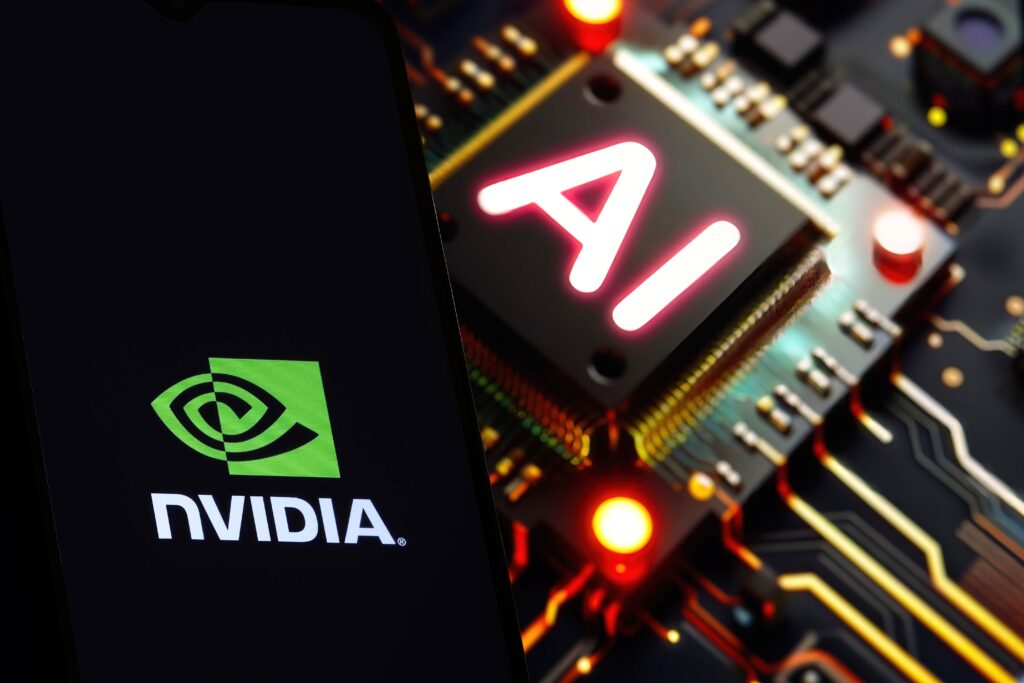Nvidia continues to post impressive growth as global appetite for artificial intelligence expands, though political tensions threaten its progress.
On Wednesday, the chip designer reported $46.7bn (£34.6bn) in revenue for the second quarter, a 56% increase compared with the same period last year.
Yet its shares slipped in after-hours trading after executives admitted the firm was still “working through geopolitical issues”. Nvidia remains deeply affected by the trade dispute between Washington and Beijing.
Shifting policies from the Trump administration, aimed at protecting America’s lead in artificial intelligence, further complicate the company’s future.
Tech giants fuel Nvidia’s rise
Nvidia’s advanced processors lie at the core of the AI revolution.
The firm said demand stays strong from major technology companies such as Meta, the owner of Instagram, and OpenAI, the developer of ChatGPT. Both are investing heavily to expand AI infrastructure.
“The AI race is now on,” said Nvidia chief Jensen Huang in a call with analysts. He revealed that four large technology players had doubled annual spending to $600bn.
“Artificial intelligence will accelerate GDP growth over time,” Huang added. “We are building the infrastructure to support it.”
Analysts see Nvidia’s dominance as unmatched. Colleen McHugh, chief investment officer at Wealthify, described the company as “the driver of the AI boom”.
She noted that Nvidia relies heavily on continued spending from technology giants. If investment holds, she said, its revenue and share price should continue to rise.
Data centre revenue climbed 56% to $41.1bn but fell slightly short of expectations. Investor Eileen Burbridge, founding partner of Passion Capital, said this weaker performance caused the “share price wobble”.
Even so, she called the company’s growth “unbelievable” and warned of a potential bubble driven by excessive excitement.
In July, Nvidia became the world’s first $4trn company. The firm now forecasts $54bn in revenue for the current quarter, surpassing Wall Street expectations.
Geopolitics cloud the outlook
Despite record results, Nvidia faces growing political challenges.
In July, the company announced plans to restart sales of its high-end AI chips to China. The decision followed lobbying from Huang, who convinced the Trump administration to lift its ban on the H20 chip, built specifically for Chinese customers.
The ban had been introduced over concerns that the chips could support China’s military as well as its AI industry.
Executives confirmed that late in July, US officials began reviewing licenses for H20 sales. Some Chinese customers received approvals, but Nvidia has not shipped the chips.
The US government expects 15% of revenue from licensed H20 sales. Nvidia left the H20 out of its forecast and continues pressing for permission to sell its Blackwell chips in China, the world’s biggest chip market.
At the same time, China is stepping up efforts to strengthen its domestic chip industry. “US export restrictions are fuelling Chinese chipmaking,” said Emarketer analyst Jacob Bourne.
He added that Nvidia’s long-term status as “the bellwether of the AI economy” may depend on whether its move into robotics secures its dominance.


